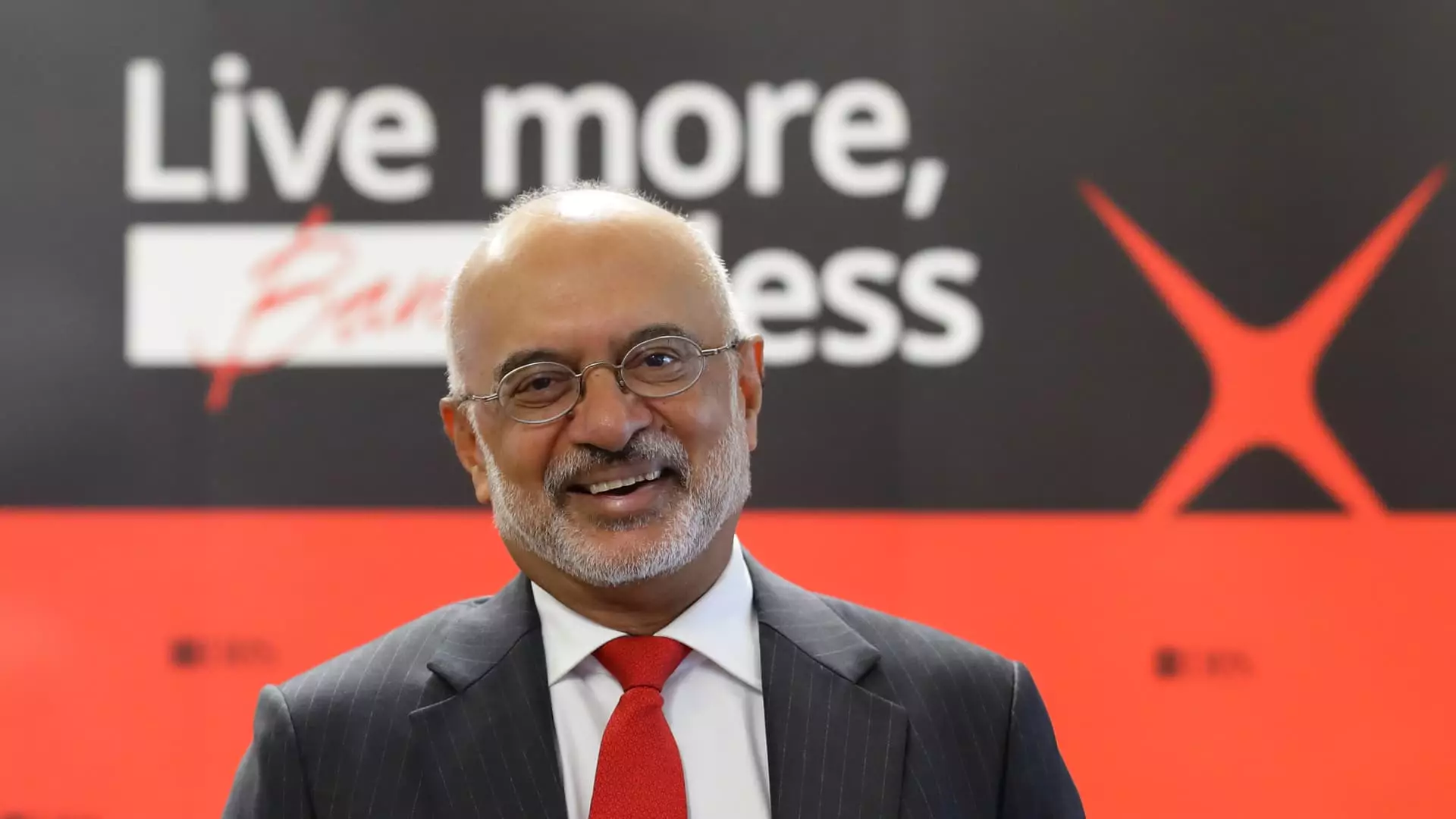Following a banner year in 2024, in which DBS Bank, Singapore’s largest financial institution by assets, achieved record net profits, CEO Piyush Gupta remains cautiously optimistic about the challenges that lie ahead in 2025. In a revealing interview with CNBC’s JP Ong, Gupta stressed the importance of agility and responsiveness as DBS faces an increasingly unpredictable economic landscape influenced significantly by U.S. government policies. The stellar results posted by DBS, where net profit rose 11% year-over-year to an impressive SG$11.4 billion (around $8.4 billion), stand in stark contrast to the headwinds anticipated in the upcoming year.
Gupta characterized the previous year’s performance positively, citing a broad spectrum of successful outcomes, including record-high fee income and robust treasury sales, which significantly contributed to the bank’s revenue growth of 10%, reaching SG$22.3 billion. Central to this success was the bank’s net interest income, which demonstrated a healthy increase of 5% year on year, hitting SG$15.04 billion. Such figures highlight DBS’s solid footing in the financial sector amidst fluctuating market dynamics.
Tackling Market Volatility
Despite the bank’s notable accomplishments, Gupta foresees a turbulent economic climate ahead, particularly due to the potential influence of the U.S. administration’s economic strategies, including variable tariffs and tax regulations. The uncertainty regarding forthcoming decisions from the Federal Reserve around interest rates complicates predictions and planning efforts within the organization. Originally projecting four potential interest rate cuts in the United States during 2025, DBS has now adjusted its expectations to only two, as outlined in its recent earnings report.
The intricacies in forecasting interest income are formidable, Gupta explained, as they are affected by numerous external factors. There is an undeniable connection between global monetary policies and local banking performance, whereby regional financial institutions like DBS must refine their strategic framework to ensure stability and growth amidst varying international economic conditions.
Even in the face of anticipated challenges, Gupta highlighted the firm’s commitment to its shareholders, particularly regarding capital management. In light of DBS’s strong capital adequacy—currently at 17%, substantially above its operational threshold of 13%—the bank is poised to institute a new “capital return” dividend strategy commencing in 2025. This strategy includes a proposition for a quarterly payout of SG$0.15, reflecting the bank’s intent to judiciously circulate excess capital back to its shareholders.
In addition to the regular dividends, which are set to increase by a notable 27% year-on-year, the bank has proposed a final dividend of 60 Singapore cents for the fourth quarter, illustrating its commitment to delivering consistent returns amid evolving market circumstances. This focus on shareholder returns underscores the management’s awareness of investor expectations, dexterously balancing growth with shareholder rewards.
As Piyush Gupta prepares to step down as CEO at DBS Bank—transitioning leadership to deputy CEO Tan Su Shan at the upcoming annual general meeting—his tenure will be remembered for both an impressive growth trajectory and a proactive approach in dealing with inevitable market fluctuations. Gupta’s perspective elevates the conversation about adaptability in the banking sector and highlights the critical need for institutions to remain flexible in their strategies as both local and global economies shift.
Gupta’s reflections serve as a reminder of the dynamic challenges and opportunities that lie ahead. While the bank revels in its achievements, the imminent financial year requires vigilant preparation and strategic foresight to ensure continued resilience and success in a choppy landscape. The leadership transition at DBS marks not just a change in personnel but a pivotal moment for the bank as it embarks on the next chapter of its legacy.

